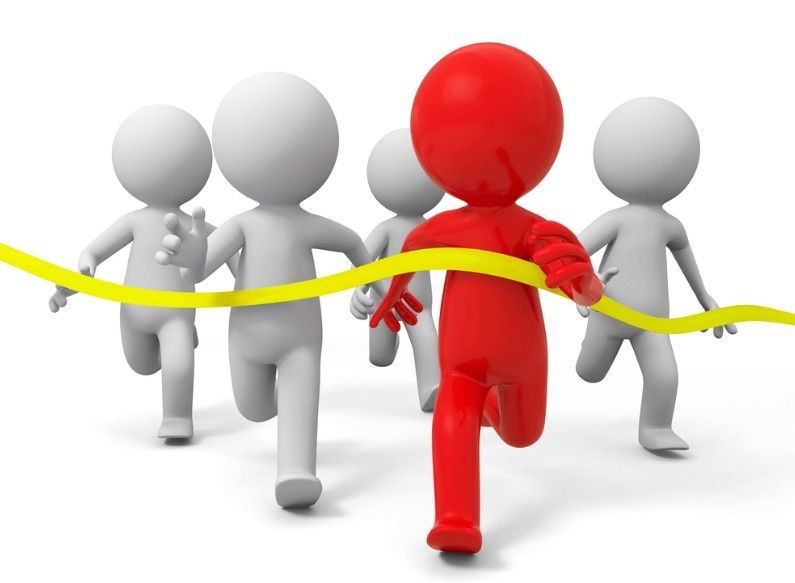‘So What?’ or ‘Here’s How’
August 14, 2025
Team selling with subject matter experts can be the best sales experience you’ll ever have–or the worst. It’s entirely up to you and your SMEs.
When subject matter experts (SMEs) and salespeople call on prospects together, things often go swimmingly. In fact, when they’re using a sales process they’ve created together, a skilled consultative sales rep and an SME make up the most powerful sales teams we see.
But when they don’t, sales calls can drown in a flood of misguided communication that results in frustration for prospects, sales reps, and SMEs alike.
What happens?
Decision-makers think in terms of implication. They are in “So what” mode: “If I buy this product or service, what will it mean to my business?” Subject matter experts think in terms of “Here’s how” because that’s what they love and what they’re good at. Unfortunately, much too early in the process, SMEs tend to tell prospects, “Here’s how our product works. Isn’t that great?”
Bridging the gap are the sales reps. If they have well-developed consultative selling skills, they are in discovery the moment they walk in the door, if not before. They don’t tell; they ask. They want to know what a prospect’s objectives are in connection with their product or service so they can answer the all-important “So what?” question. Then, if they can help the prospect appreciate the value their product brings to the table, a technical expert can be indispensable to sealing the deal. An SME reassures the prospect with detail: “Yes, our product is extremely effective–here’s how and why.”
But before that point in the process, an overenthusiastic SME can hijack a sales call by diving into an explanation of how a product works before the sales rep has had a chance to ask questions that build trust and establish whether a need even exists. The decision-maker can find himself caught in a crossfire of words that don’t answer “So what?”
Over the years, I’ve sold with nuclear power-plant engineers, lawyers, real estate developers, software designers, and other highly talented and knowledgeable SMEs. There’s nothing like the success that combines a strong sales process and consultative selling skills with great technical information.
How can business developer-SME teams achieve that success during sales calls? We’ve found that three things come into play.
1. Customized Sales Process: The most important factor. Years ago we taught consultative selling skills to business developers at a utility and created a sales process tailored to them and their industry. When the salespeople first understood the basic principles of our program, they insisted that their SMEs–engineers, in this case–receive the same training. Their rationale, paraphrased, was that “otherwise [the SMEs] will jump in and undo everything we are doing in the sales process.”
An effective sales process must draw intellectual property from the SMEs that sales reps can use in specific ways to learn a prospect’s objectives and issues and to build trust. But this approach goes way beyond simply identifying of needs or “finding the pain.” It involves an inventory of potential issues the solution addresses, the implications of those issues, rules of thumb to gain perspective, and stories to help educate on the issues.
2. Skill Level and Clear Roles: Once the sales process is in place the sales rep-SME team has to decide how to execute it. Effectiveness here depends on the relative skill level of both the seller and the SME. At the beginning they may want to make calls together at the front end of the process. Later it may be possible for the sales person to work alone until the sales process has been advanced to the point technical expertise is needed. In that model, the SME takes center stage near the end to answer final questions and help close the sale.
3. Pre-Call Planning and Practice: The sales process should be reviewed before the first calls so that decisions can be made about who goes along, who is the lead, what role a second or third person plays, and so on. More pre-call communication among the team members improves effectiveness. A few minutes of role playing can work wonders.
Two other important factors also influence sales rep-SME teams: the compensation system and the level of trust within the team.
The compensation system must establish who makes initial contact with the prospect, who helps sell the product or service, and who performs the work–that is, supplies the deliverable–once the sale is made as well as how each role is weighted for compensation and incentives. If this breakdown isn’t standard, team members should negotiate splits on their own with each other. SMEs, especially, will come to value the sales rep’s ability to speed up the sales process without calling on them until necessary. End result: SMEs can do more of what they love to do-implement the solution!
Trust with sales-SME teams can take years to develop. If new people rotate in and out too often, trust simply cannot be in place. It can, however, be accelerated by experts in building trust, either from inside a company or outside.
Our consultative sales training course, FOCIS®, does in fact build trust within the team. And, although we’re not experts in sales compensation, we can point you toward proven professionals we know who are. Just ask us if you are looking for that kind of assistance.
Sales rep-SME team members can be extremely productive if they know their roles in the sales process and how to perform them. Please tell us about your experiences and ideas at 847-446-0008 X-1 or pkrone@productivestrategies.com. We’re always learning, too, especially from the marketplace.
The post ‘So What?’ or ‘Here’s How’ appeared first on Productive Strategies, Inc..










